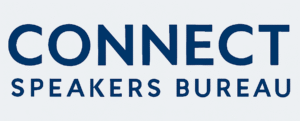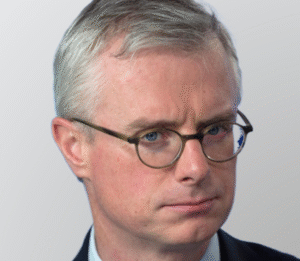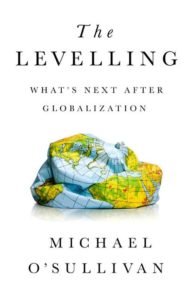Michael O’Sullivan is an economic and geopolitical speaker. He has twenty years’ experience in global financial markets, most recently as Chief Investment Officer of Credit Suisse, where he worked for twelve years. He now advises a number of asset management and fintech companies.
As a fintech founder and adviser, as well as venture investor, Mike is actively tracking the impact of AI capex in financial services, as well as its role in operating models’.
He is the author of “The Levelling” What’ Next After Globalization” and is a senior contributor at Forbes. He writes about political, technological, and economic aspects of post-globalization. His work covers topics such as debt, democracy, and new technologies like quantum computing. He also analyzes the economic and financial world outside the U.S. for a U.S. audience.
A senior adviser at WestExec and a trustee of the Jane Goodall Legacy Foundation, he brings extensive experience across global policy and governance.
Mike is an advisor to Moonfare and an active investor in deep tech and fintech. He founded two fintech start-ups.
His recent work includes co-authoring L’Accord du Peuple (Calmann-Levy) and producing the BBC Radio 4 documentary Waking up to World Debt, along with several podcasts on the subject.
Previously a member of the World Economic Forum’s Council on the New Economy and a Forbes contributor, he has spoken at the 2020 TED Talk conference and at TEDx Stormont on restoring democracy.
Michael has contributed to The Financial Times, and Wall Street Journal in addition to being a regular guest on CNN, BBC, CNBC and Bloomberg.
He studied in Cork and received MPhil and DPhil degrees at Balliol College, Oxford as a Rhodes Scholar. He has taught finance and economics at Oxford University and Princeton University.
TOPICS & TALKS:
The End of Globalization, What Comes Next
How economies, trade, and politics are shifting into a new multipolar era.
The Emerging Economic Zone of the Middle East
The Fourth Pole will Donald Trump change the middle-east.
Levelling Economies: Addressing Inequality in the Post‑Global Order
What rising inequality means for stability, democracy, and investment.
Markets & Power: How Geopolitics Shapes Financial Risk and Opportunity
How shifts in global power (China, India, regional blocs) are altering market assumptions.
World Debt: Risk, Resilience, and the Next Financial Crisis
What heavily indebted economies should brace for, and what we can do.
Restoring Credibility in Democracy
How democracies can renew trust, handle social media influence, and strengthen institutions.
Surviving the AI Bubble: Tech, Hype, & Reality
Separating speculation from sustainable innovation; what AI means for economies and jobs.
European Resilience: Can the EU Lead in a Fractured World?
What it needs to do to respond to immigration, geopolitical tension, climate policy, etc.
The New Institutional Landscape: Beyond WTO, IMF & Old Global Rules
What new multilateral and regional institutions are emerging, and how companies/nations should adapt.
Credible Finance: Reimagining Markets in Unstable Times
Inflation, interest rates, risk cycles, how people and institutions can prepare.


